- Tova Walsh, Darryl Davidson, and Craig Garfield
- February 19 2020
- W63-2020
- Link to W63-Slides-Role-of-fathers-in-childrens-health (PDF)



Darryl Davidson, Men’s Health Manager, City of Milwaukee
Craig Garfield, Professor of pediatrics at Northwestern University Feinberg School of Medicine and attending physician at Lurie Children’s Hospital of Chicago where he directs the Family and Child Health Innovations Program (FCHIP)
Fathers play an important role in children’s health and development. Fathers’ own health and health behavior influences the well-being of their children and partners as well as fathers themselves. Healthcare and child and family services providers can help promote optimal outcomes for children and families by involving and supporting all caregivers, including fathers. This webinar:
- Provides insight into the role that fathers play in child and family health.
- Addresses the experiences of fathers in prenatal and pediatric care settings, and identify strategies for providers to engage expectant and new fathers.
- Discusses strategies for promoting fathers’ own physical and mental health, and supporting fathers to model positive health behaviors for their children.
Recording of the Webinar
This webinar was presented in cooperation with the Wisconsin Child Abuse and Neglect Prevention Board.
See our YouTube Fatherhood and Men’s Health playlist for other webinars in this series.
Highlights from the Webinar
(Clicking on slide image will take you to the highlighted section of the webinar recording)
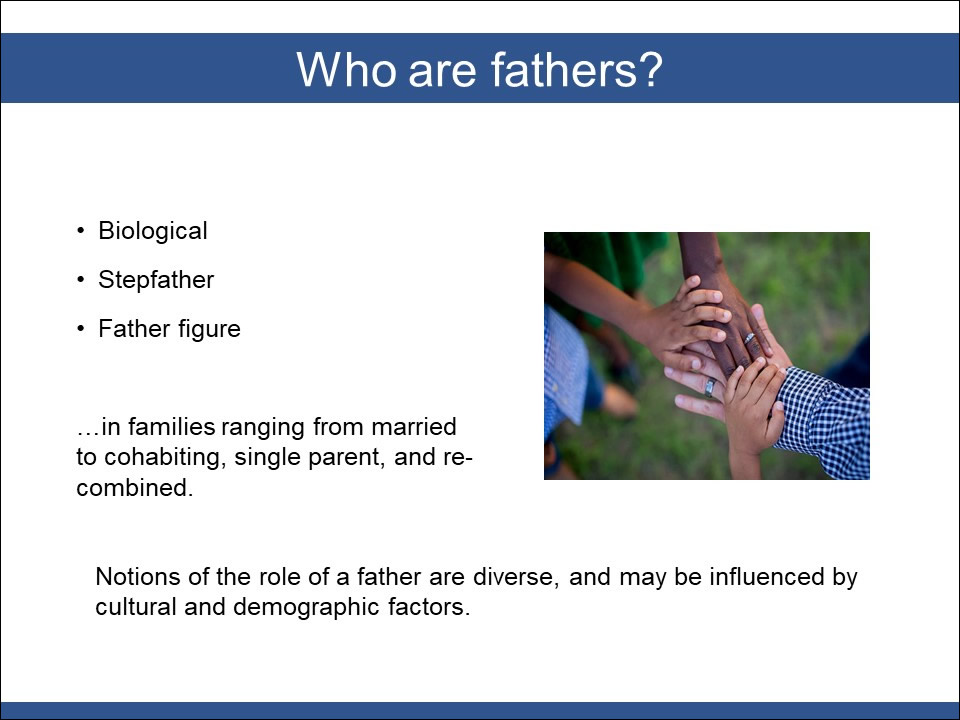
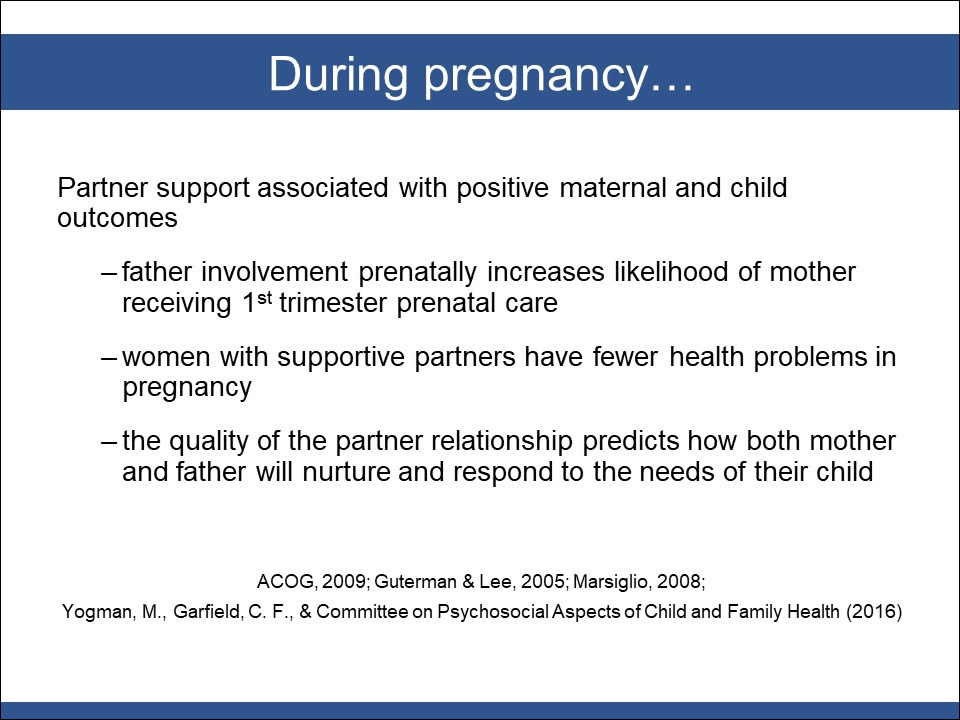
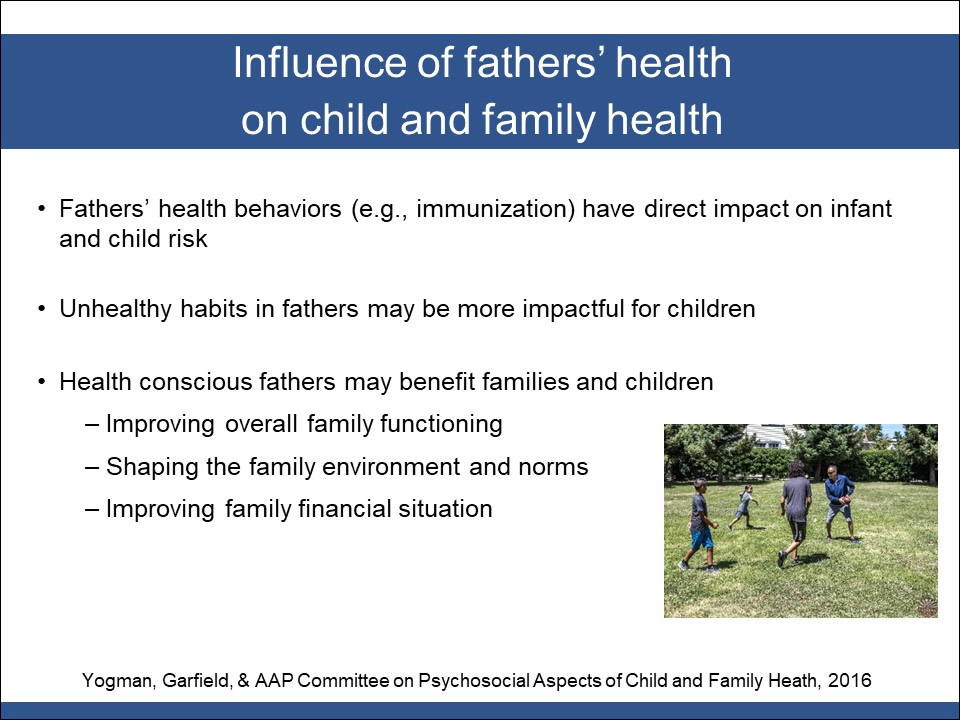
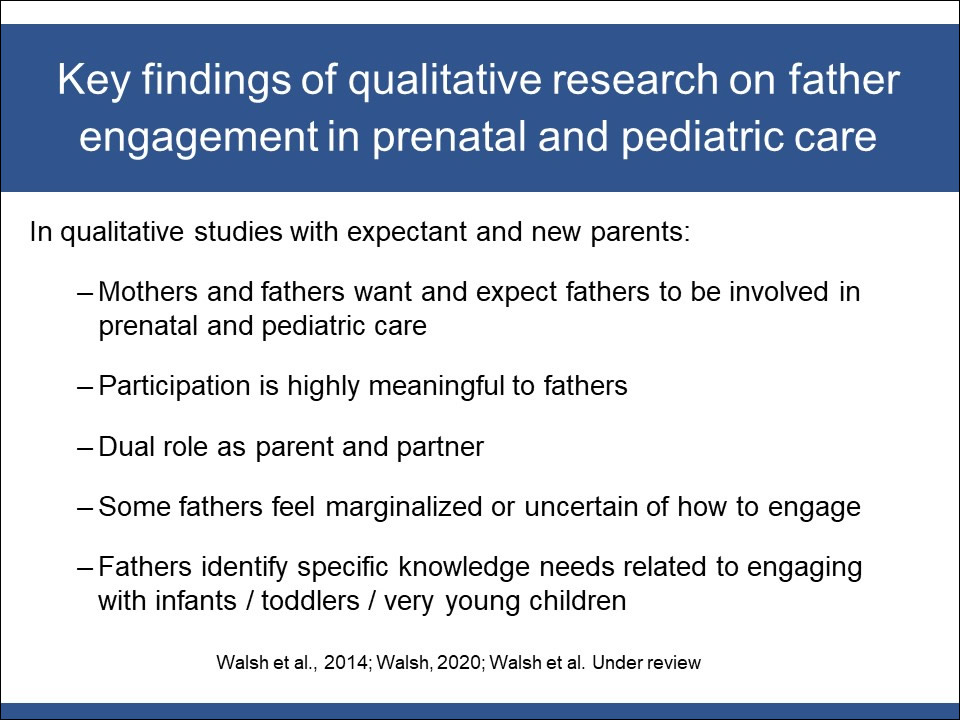
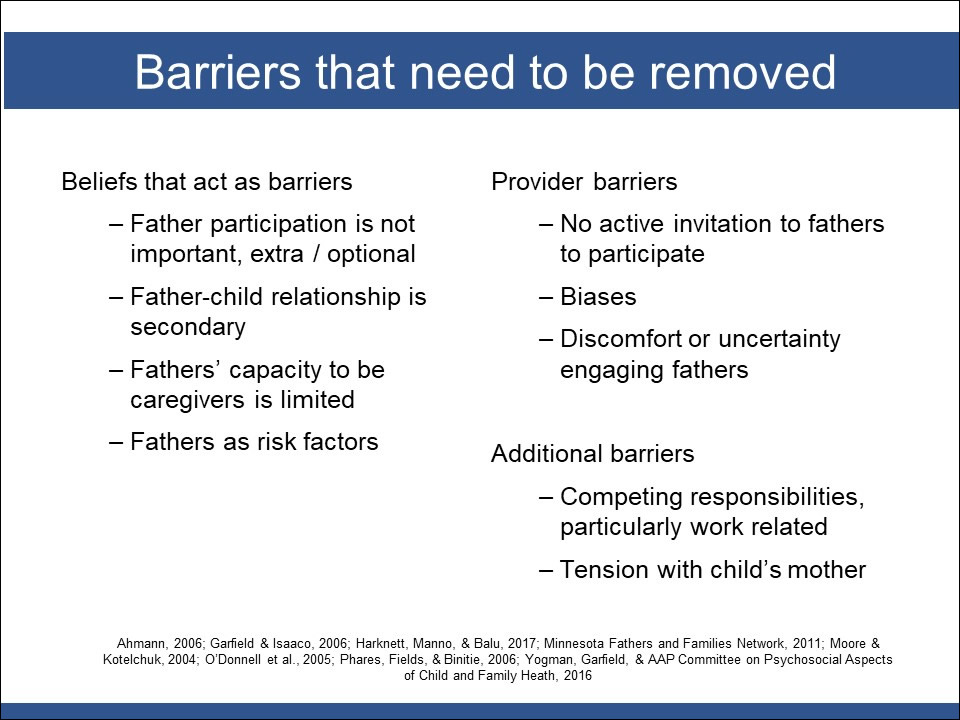
Categories
Child Development & Well-Being, Child Maltreatment & Child Welfare System, Children, Family & Partnering, Health, Health Care, Parenting
Tags
Childcare, Fathers, IRP-CANPB Webinar, Men, Milwaukee, Young Men